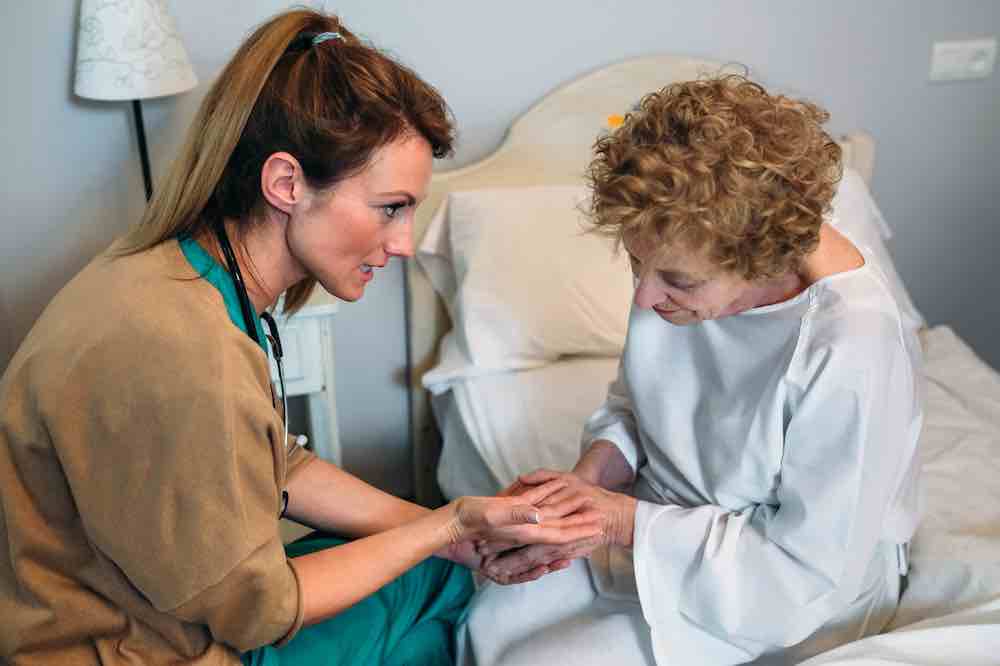In home hospice, it takes a village to bring about the best outcomes for each patient. Employees become a part of each patient’s team and come on a regular schedule. Every team member plays an important role in helping the patient and their family. However, hospice employees may not be capable of meeting every possible need that may arise. Hospice patients require much support and around-the-clock care. And that’s where the unsung heroes of hospice care come in.
Hospice volunteer opportunities are there to go the extra mile with patients in need. While each member of the employee team has a specific role, volunteers are especially important in making the end of life manageable and comfortable. Volunteering in hospice care may not look the same in every patient’s situation, but each circumstance carries significant value.
How do volunteers provide support to hospice patients?
Companionship
This is perhaps the most needed role of hospice volunteers. Companionship goes the longest towards helping a patient. Each patient has a different dynamic with their relatives and community, and many have a desire for more human connection. It can be a great comfort just to have someone nearby, even if that is all a volunteer does.
Hospice volunteers provide companionship by reading books, watching a movie, talking, or partaking in a patient’s hobby. Volunteers can ask questions about the patient’s life and listen to their stories. They can also offer a listening ear and shoulder to cry on — both for the patient and their family. Developing a relationship with a patient can be very rewarding for volunteers because they know that they’ve made a difference.
Practical Support
Aside from providing companionship, hospice volunteer opportunities can involve helping patients with some basic support around the house. Tasks like doing the dishes, folding laundry, or walking the dog can really take the load off for a patient. This kind of support is especially helpful for those who struggle with mobility.

More examples of practical support include meal preparation (which can help a patient for days to come) and providing reminders for medication and home visit appointments. As a patient prepares themselves for the days, weeks, or months ahead, it can refresh and relieve them to have tasks like these taken off of their plate.
Respite Care
In home hospice, there are typically one or two people designated as a full-time caregiver. The caregiver’s role is to be there for the whole day or night and care for the general needs of the patient. Tasks that a caregiver completes throughout the day may include rotating a patient to help them avoid bedsores, administering medication, preparing and serving meals, and assisting with personal hygiene.
Hospice volunteer opportunities include what is called “respite care.” This type of work involves taking over the tasks of a caregiver for a few hours so that the primary caregiver can take a break. Being a caregiver can be a demanding and tiring job. By providing the caregiver with a break, they can return refreshed and ready to give their best to the patient. It also creates an opportunity for the patient to interact with someone new and change things up for them. Respite care is a crucial piece of hospice care.
Emotional Support
Naturally, patients and their families experience a wide range of emotions throughout this difficult time. Patients are faced with bodily change and the nearing of their end-of-life. Families anticipate the passing away of a loved one on top of the stresses of funeral planning and paperwork. Understandably, it is a challenging time for one’s emotions.

One of the great strengths of hospice volunteers is having a caring heart and listening ear. Hospice volunteer opportunities vary in intensity and the nature of the tasks, but nearly all of them include providing emotional support. Patients and families benefit from having a kind, compassionate person to talk to. Volunteers are not required to be experts in hospice care or end-of-life topics. They must simply be willing to do the following:
- listen
- validate feelings, and
- give comfort.
It’s common knowledge that volunteering is rewarding. However, volunteering in home hospice is uniquely rewarding. Volunteers are able to step into a patient’s life during a very difficult time and speak life into their situation. They can hold a weary hand, tell jokes, listen to meaningful stories, and make life easier around the house. This kind of opportunity allows one to make a difference during a patient’s most vulnerable and needful seasons of life.
Hospice volunteers report experiencing high levels of satisfaction from being able to help others. They gain a deeper understanding and appreciation for end-of-life care, which can have a profound impact on their lives. Hospice volunteer opportunities also make great experience for those seeking a career in a related field.
If you are interested in making a profound difference in the life of a hospice patient, we warmly welcome you to do so at Envision Hospice. We are a team of compassionate caregivers, nurses, ministers, social workers, and advocates. We are always searching for kind individuals who are looking to volunteer. Please call us to learn more about how to apply and start making a difference!

